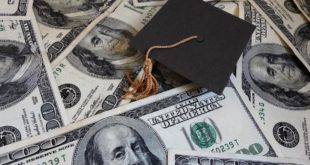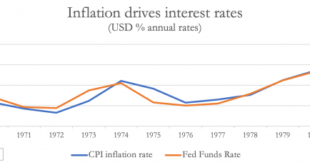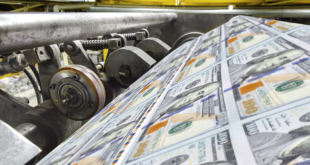In discussions concerning improving access to medical services, the question of increasing public expenditure—along with introducing new technologies or further regulations—is often raised. These and other proposals are oriented toward public solutions as if a market-based alternative was completely groundless. However, market-based solutions may not only be a “complement” to public systems, but they may also have the potential to be used on an even-larger scale—to...
Read More »Federal Student Loans Drive Up College Tuition Levels
Mises Wire contributor Kevin Van Elswyk, in his November 29 article “Student Loans: The Continuing Crisis That Is Getting Worse,” nicely summarizes the current confusion and scandal of federal student loan programs, which at this point appear a miasma that will likely turn into an outright student grant program as more and more of these loan balances are forgiven. It is most unfortunate that the US government, with good intentions to increase college attendance, ever...
Read More »It’s Time to Renew Your Mises Membership
It's that time again! Join or renew your 2024 Membership with the Mises Institute and be part of a community that champions Austrian economics, freedom, and peace. Why Join? In a world facing economic challenges, the ideas of Ludwig von Mises have never been more vital. Help us lead the charge against statism in all its forms. 3 Member Benefits The Misesian: Immerse yourself in our exclusive bimonthly publication, delivering insightful content straight to your...
Read More »Biden’s “AI Bill of Rights” May Just Be Another Censorship Plan
“Never let a good crisis go to waste.” The once-overheard quote uttered by one of Barack Obama’s advisors now represents the unjustifiable expansion and abuse of government powers of the Joe Biden era. With the pandemic arrived a litany of experiments that proved disastrous, from distance learning and expansion of the money supply to lockdowns. After all the damage and witnessing the lengths Biden and his fellows are willing to go to, anything seems to be...
Read More »What Would Mises Think? Austria Is Applying (Some) Austrian Economics
While Austria is not the free-market republic Ludwig von Mises hoped it would be, the country has made many steps in the right direction, freeing markets and protecting private property. Original Article: What Would Mises Think? Austria Is Applying (Some) Austrian Economics [embedded content] Tags: Featured,newsletter
Read More »It’s Time to Bust the Myth of Fed Omnipotence
One of the biggest and most pervasive myths in modern-day economics is the myth of the omnipotence of the Federal Reserve. Original Article: It’s Time to Bust the Myth of Fed Omnipotence [embedded content] Tags: Featured,newsletter
Read More »How Fossil Fuel Revolutionized Our Kitchens and Our Food
Coal drove the development of a whole new way of cooking and a radically different diet. A menu based upon coal-fired food was the cuisine that accompanied industrialization. Food and fuel were intricately linked in a fossil fuel-burning age. Original Article: How Fossil Fuel Revolutionized Our Kitchens and Our Food [embedded content]...
Read More »DC’s Debt Trap
In May this year, the Congressional Budget Office estimated outstanding US government debt next October to be $27,388 billion. By the end of the first quarter of the fiscal year, it will exceed $34,000 billion. It is soaring out of control, and perhaps it is not surprising that the CBO has not updated its forecasts with this debt uncertainty. The CBO also assumed that debt interest costs last year would be $663 billion, when it ended up being $980 billion 48% higher...
Read More »Why the Falling Money Supply Hasn’t Yet Created Big Job Losses
The year is ending with a significant level of optimism among investors, focusing on an expected string of rate cuts from the Fed and an estimated economic soft landing. However, a soft landing is a very rare event. Since 1975, there have been nine rate hike cycles, and seven of them ended in a recession. Why? We must understand that the concept of “landing” that the Federal Reserve repeats constantly is exactly that: a recession. A soft landing is a significant...
Read More »Greenwashing
In this week's episode Mark explains the term "Greenwashing" and describes how Austrian economists might agree with the sentiment behind it. Are Austrian school economists against the environment? Mark thinks not and explains why. Be sure to follow Minor Issues at Mises.org/MinorIssues. Get your free copy of Murray Rothbard's Anatomy of the State at Mises.org/IssuesFree. [embedded content]...
Read More » Swiss Economicblogs.org
Swiss Economicblogs.org





